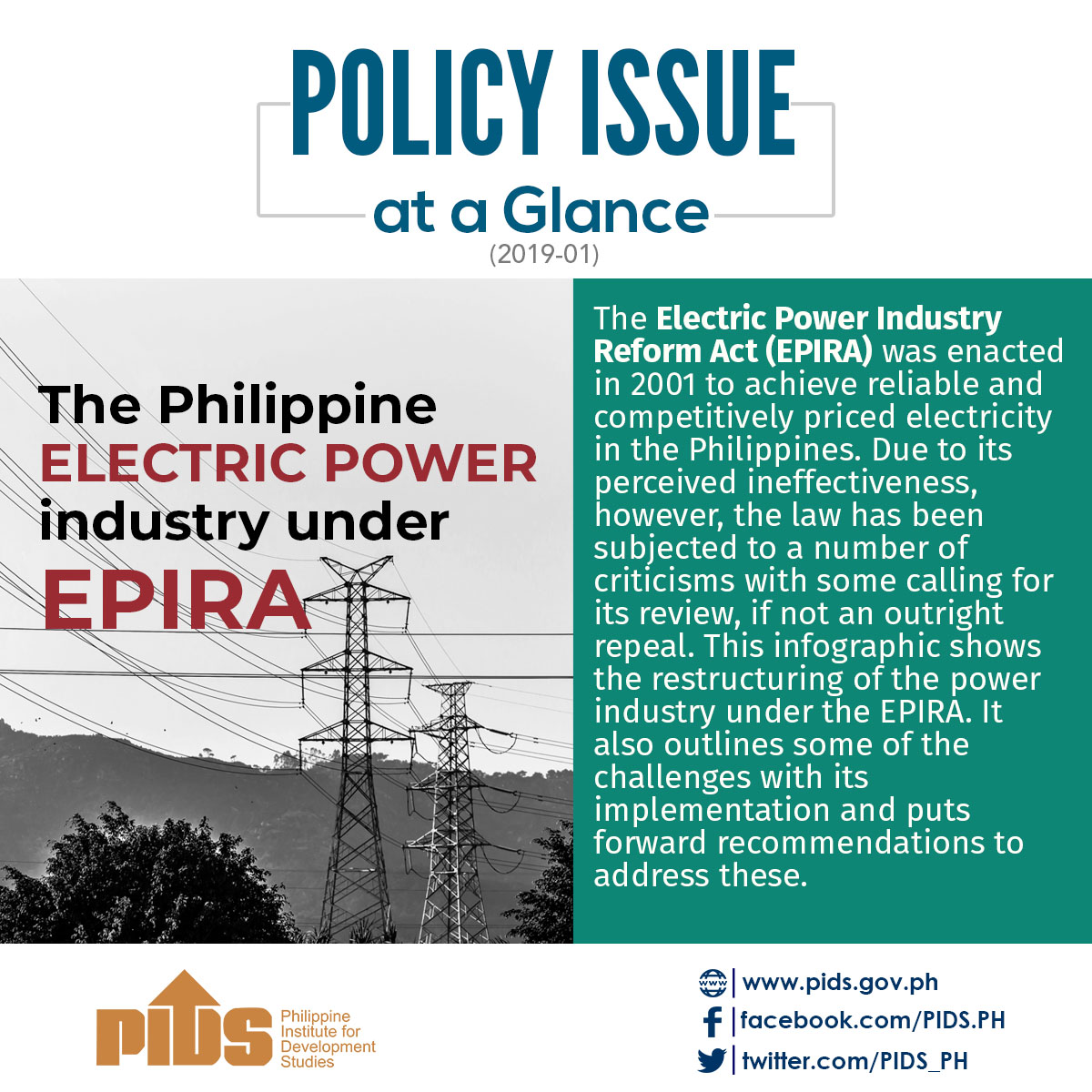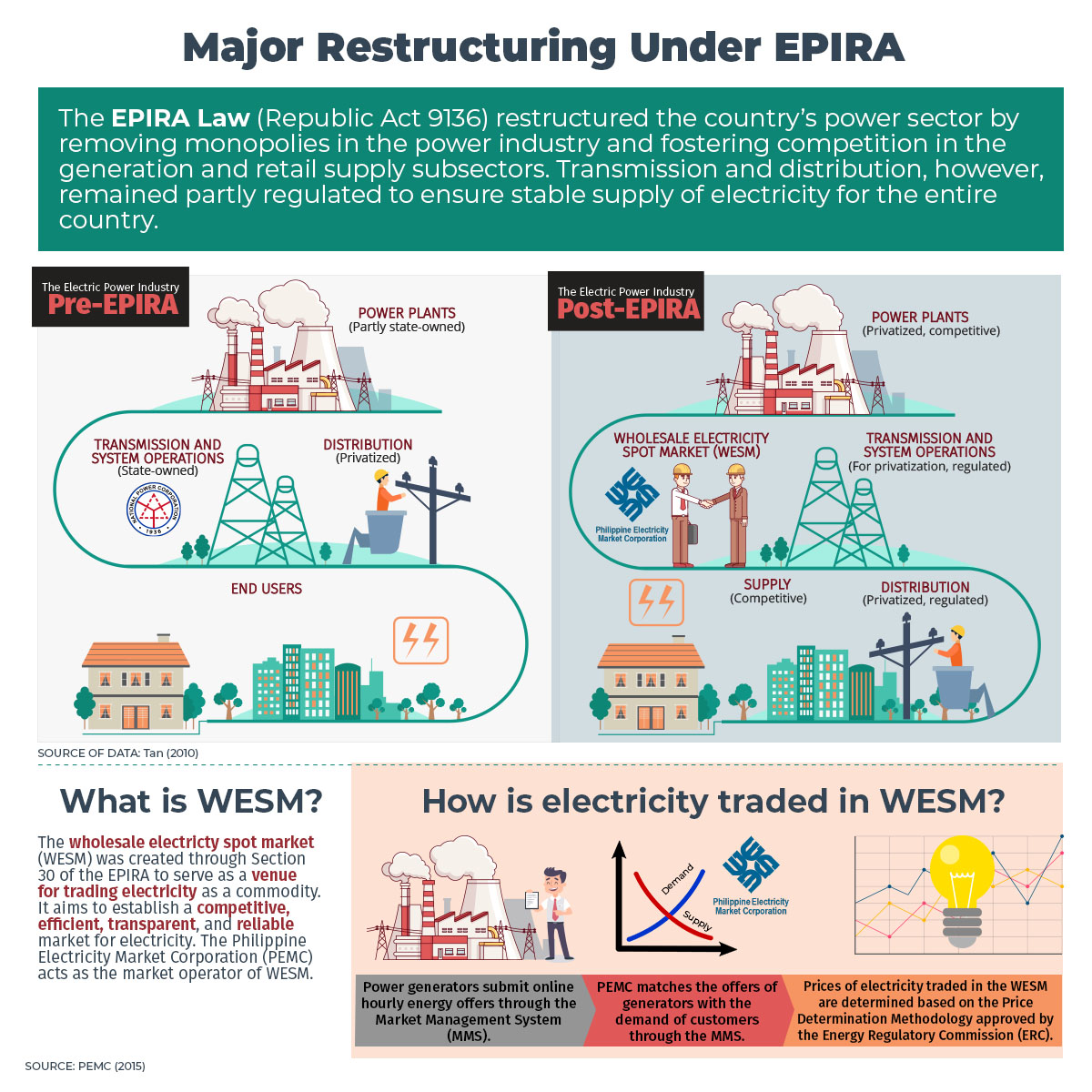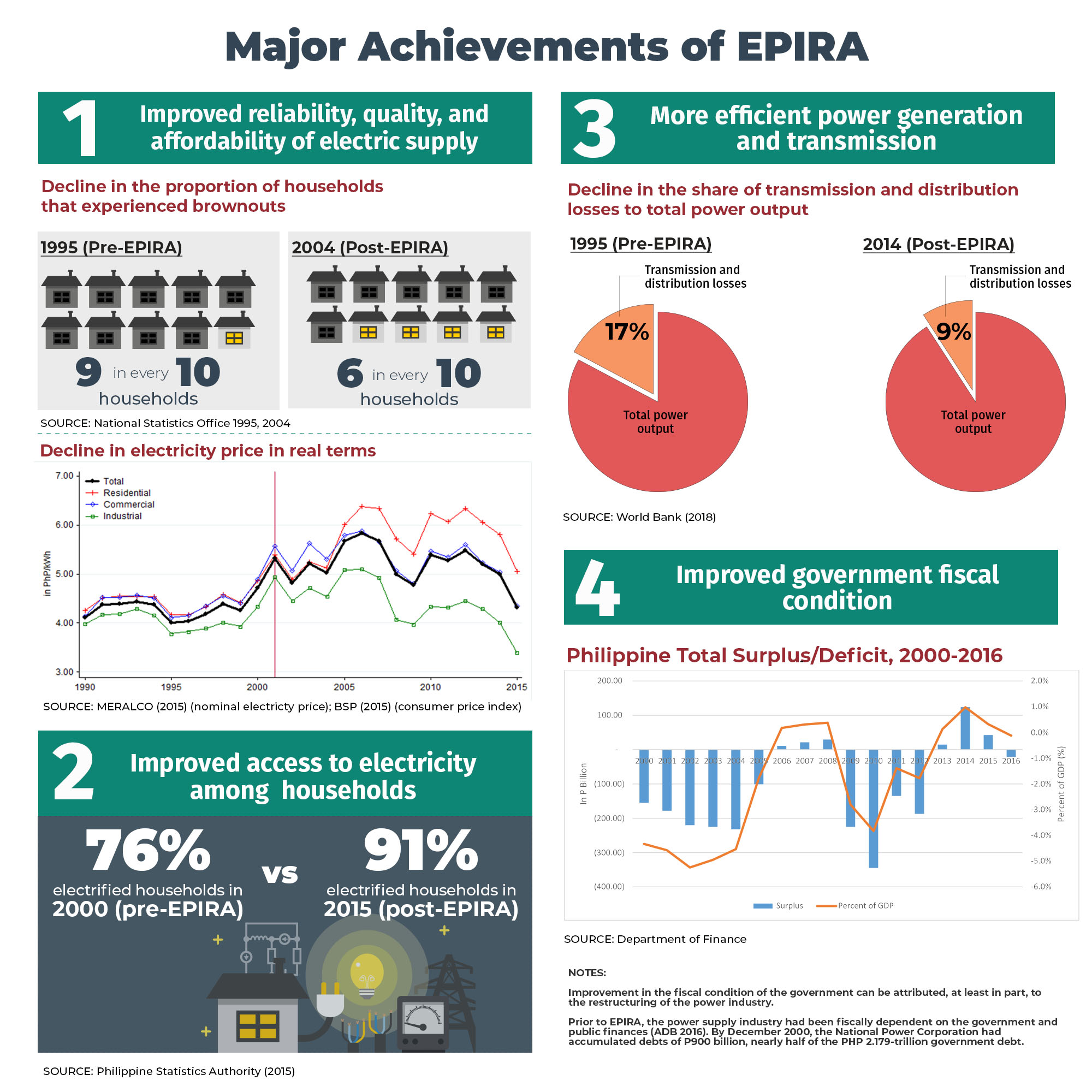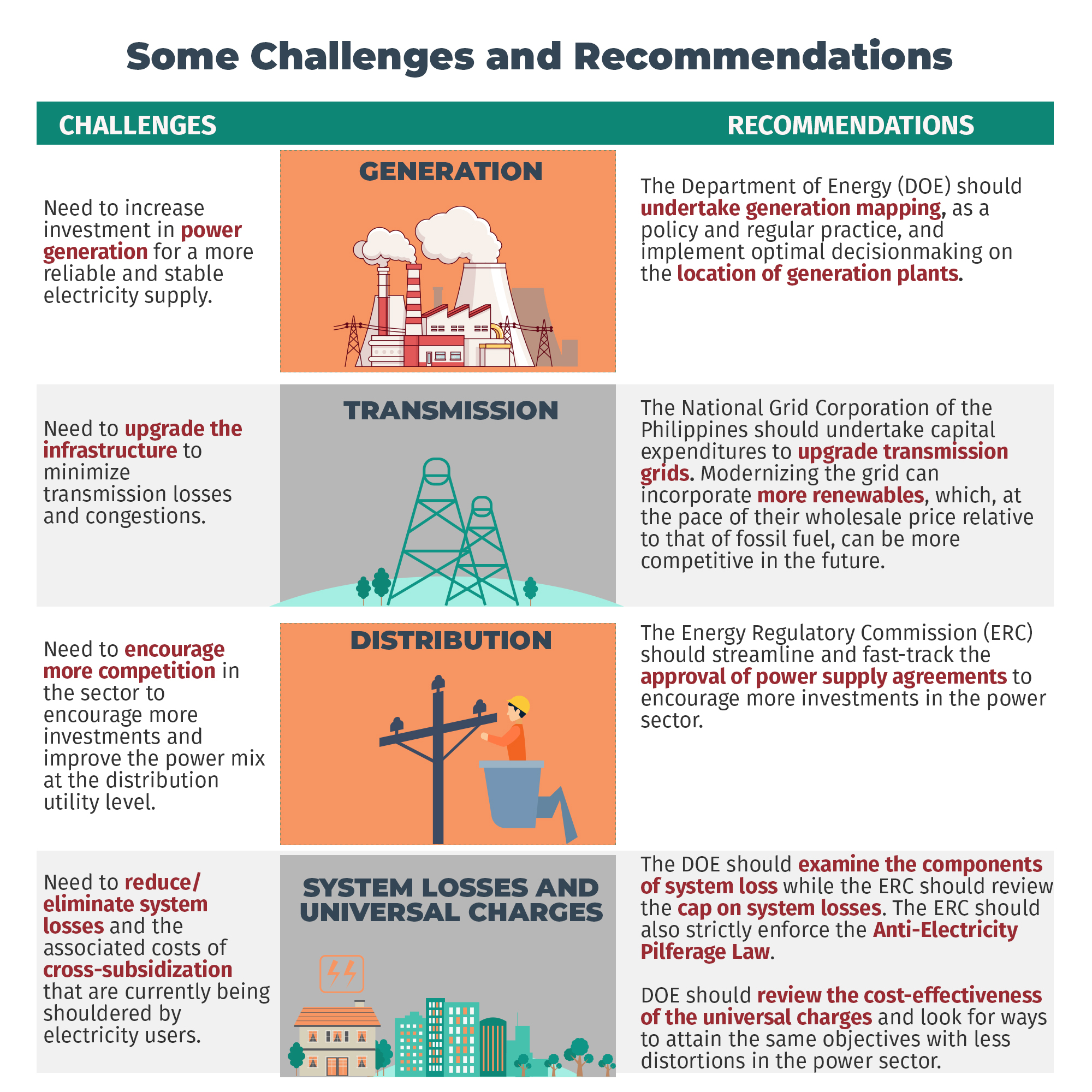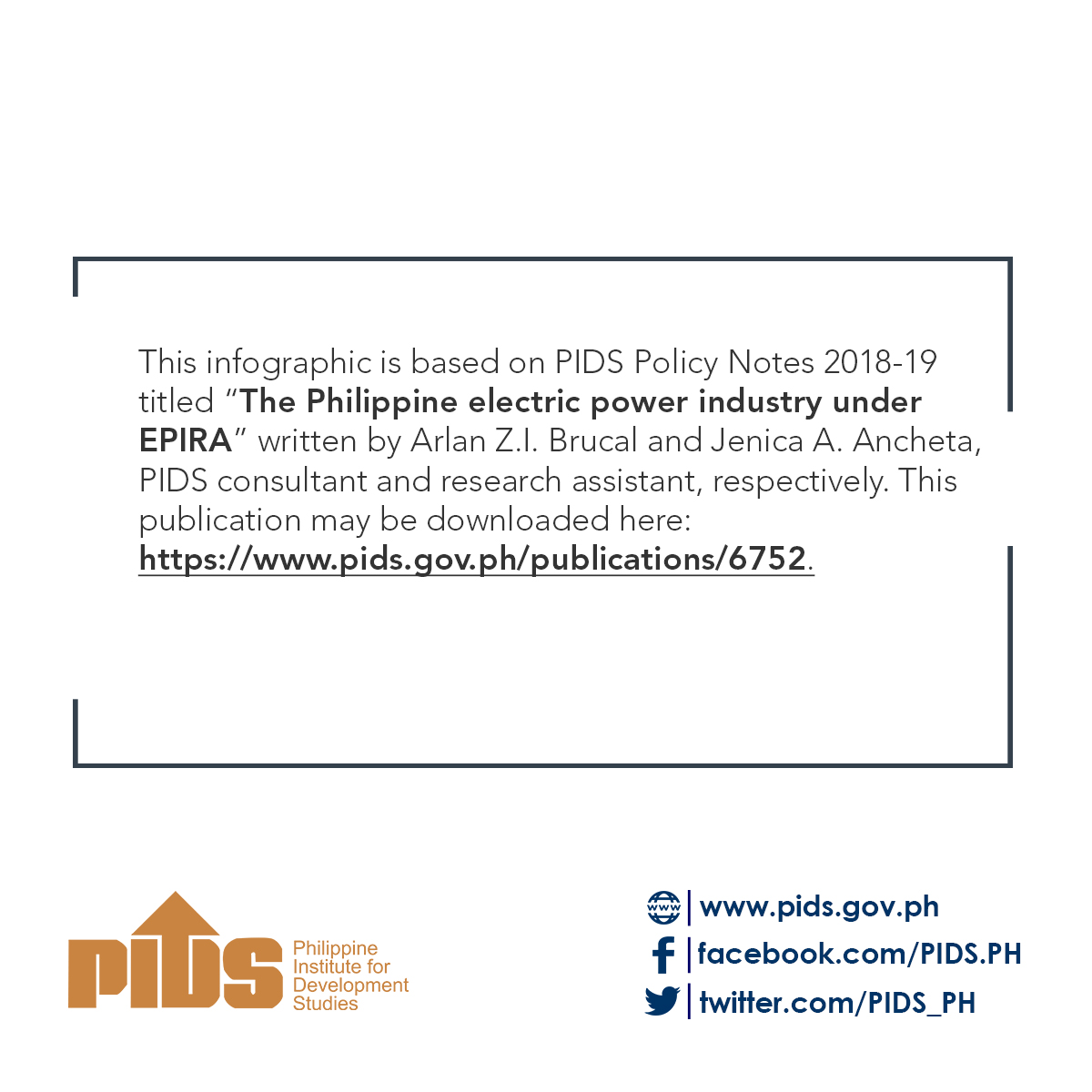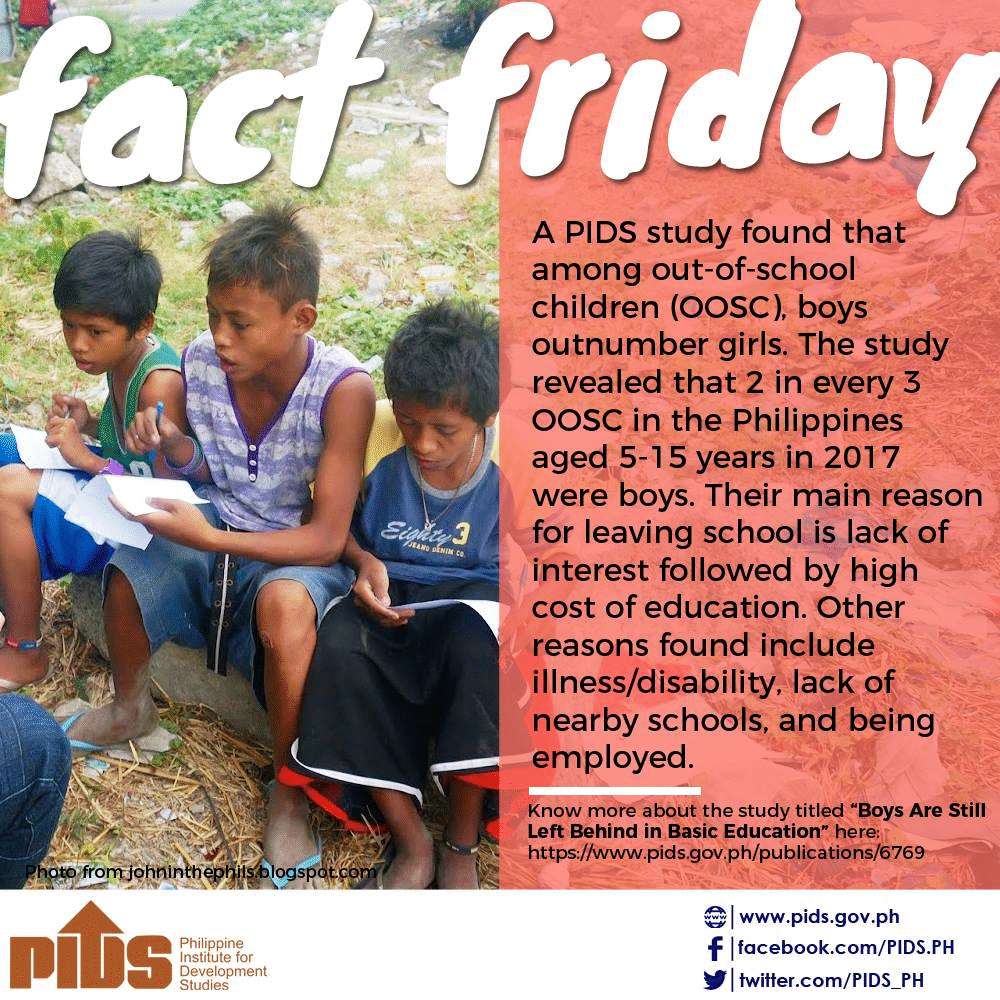Having trouble reading this email? View it in your browser. |
||||
 |
||||
|
||||
RESEARCH PAPER SERIES
This study assesses the performance of the sugarcane block farming (SBF) as a land consolidation model for increasing farm productivity and income of the sugarcane farmers' sector. As such, a framework identifying factors needed for a successful SBF implementation was formulated considering the supply chain, the policy environment, and the global market. Using a case study approach, block farms, both cooperative managed and individually managed, were examined. The study notes several issues on production, marketing, and pricing that affect the implementation of SBF. It recommends that SBF arrangements should be encouraged but the government has to provide a policy environment for Philippine export crops to be competitive. Agrarian reform beneficiaries and their associations should also be supported through capacity-building activities.
DEVELOPMENT RESEARCH NEWS DRN 2018 Vol. XXXVI No. 4:
Higher educ, research orgs must embrace open access The fourth and last issue of the Development Research News (DRN) for 2018 focused on the issues of the Philippine education sector related to the Fourth Industrial Revolution, such as open access, innovation, copyright, as well as policies, such as the K to 12 program. The banner article zeroes in on the open access movement in the Philippines in relation to education and research, which was tackled during the fifth biennial meeting of the Socioeconomic Research Portal for the Philippines (SERP-P) Project. Highlights of this event are also featured in the issue. This DRN likewise features articles revisiting the poor innovation capacity of the country's education sector, the hazy copyright policies on works generated using artificial intelligence, as well as on the implementation issues of the K to 12 program. Completing this issue are articles on developed countries' attempt to relabel their development aid as climate relevant and the lack of focus of the official development assistance of Japan and South Korea on gender and women empowerment in the region. Click here to download the publication.
POLICY NOTE PN 2019-01:
Pressures on Public School Teachers and Implications on Quality This Policy Note revisits the chronically overworked state of public school teachers in the Philippines. It finds that the workload of public school teachers is not only limited to teaching but also to other nonteaching tasks. Because of this workload, actual teaching is increasingly being sidelined by the multitude of other responsibilities and roles that teachers play. The study also finds the dropout rate as a faulty metric of teacher performance. Given these findings, it urges the government to address human resource distribution at the Department of Education. It also recommends the conduct of evidence-based studies in reducing teacher workload. Click here to download the paper.
|
March 6, 2019, 9AM–5PM March 4, 2019, 2PM–5PM February 6, 2019, 10AM–12NN -----------------------------------------
The Philippine Journal of Development is a professional journal published by the Philippine Institute for Development Studies. It accepts papers that examine key issues in development and have strong relevance to policy development. As a multidisciplinary social science journal, it accepts papers in the fields of economics, political science, public administration, sociology, and other related disciplines. It considers papers that have strong policy implications on national or international concerns, particularly development issues in the Asia-Pacific region. CLICK HERE for the guidelines in the preparation of articles. Submissions and inquiries may be sent to PJD@mail.pids.gov.ph.
|
|||
Government regulators in the Philippines should focus on the benefits of the new technologies to the people instead of focusing on rules and processes.
As financial technology (fintech) platforms proliferate, the Bangko Sentral ng Pilipinas (BSP) has launched a number of initiatives aimed at establishing adequate safeguards to manage the potential risks brought by these new technologies while providing enough room for companies to develop and implement their innovations. | ||||
POLICY ISSUE AT A GLANCE The Philippine Electric Power Industry Under EPIRA The Electric Power Industry Reform Act (EPIRA) was enacted in 2001 to achieve reliable and competitively priced electricity in the Philippines. Due to its perceived ineffectiveness, however, the law has been subjected to a number of criticisms with some calling for its review, if not an outright repeal. This infographic shows the restructuring of the power industry under the EPIRA. It also outlines some of the challenges with its implementation and puts forward recommendations to address these.
To view in actual size, visit the PIDS website or the PIDS Facebook page.
FACT FRIDAY Every Friday, PIDS releases nuggets of research results culled from different PIDS studies. Here are the latest #PIDSFactFriday issues. Like us on Facebook for more #PIDSFactFriday issues. |
||||
Need help? Have feedback? Feel free to contact us. © 2018 Philippine Institute for Development Studies.
|
||||
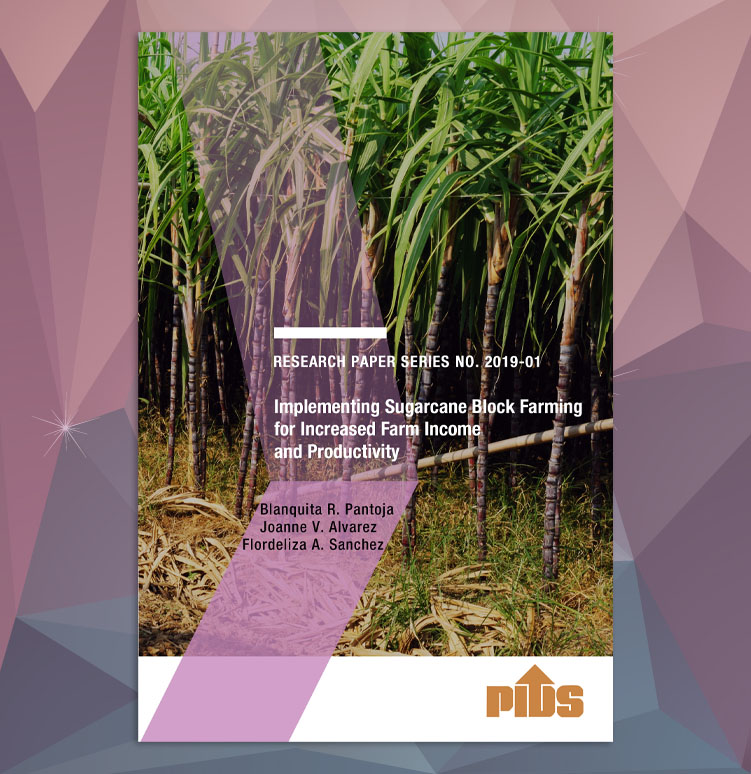 RPS 2019-01:
Implementing Sugarcane Block Farming for Increased Farm Income
and Productivity
RPS 2019-01:
Implementing Sugarcane Block Farming for Increased Farm Income
and Productivity.jpg)


